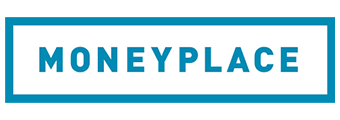
- Ensure you have all necessary documentation and identification ready to streamline the personal loan application process.
- Check and improve your credit score and history, and consider pre-approval to boost your chances of loan approval.
- Assess your financial situation realistically, applying for an appropriate loan amount that fits within your budget.
- Always provide accurate and truthful information on your application to avoid denial and potential legal issues.
We all know that lenders look at your income, your financial stability and assets, as well as at your credit score, when they consider your application. These factors, however, are only the tip of the iceberg; there's much more going on behind the scenes when you submit your application.
A lot of your personal loan fate is down to you - the borrower. It's these personal, controllable factors and tips that you should know more about, so that when you apply for your personal loan you are more likely to get approved - and fast.
How long does it take to get approved for a personal loan?
Many lenders, especially digitally-focused ones, can approve a personal loan application within a day. For many others, it can take as little as three days. But to do this, you’ll need to get your ducks in order.
What this means is that you’ll need to come to the lender before you’ve even applied with your necessary documentation at the ready, having already done your homework. And you can do that by following these steps in this article.
You may well be weeded out by an algorithm before you even get to a human. These algorithms sort out the strong applications and separate the wheat from the chaff, so to speak, so they can move them to the next stage sooner. Online lenders in particular use computers to assess applicants as it helps them to offer their rapid approval service and potentially a lower interest rate.
If you know you're likely to be seen by a robot first, then make sure you fit all the criteria before you apply so you don't waste time and rack up several failed applications that leave a muddy footprint on your record.
1. Compare Personal Loans
| Fixed | Unsecured | N/A | More details | ||||||||||
| FEATURED | Unsecured Personal Loan (Excellent credit) (5 Years)
| ||||||||||||
Disclosure | |||||||||||||
Unsecured Personal Loan (Excellent credit) (5 Years)
Disclosure
| |||||||||||||
| Fixed | Unsecured | N/A | More details | ||||||||||
| FEATURED | No Fee Personal Loan (5 Years)
| ||||||||||||
Disclosure | |||||||||||||
No Fee Personal Loan (5 Years)
Disclosure
| |||||||||||||
| Fixed | Unsecured | N/A | More details | ||||||||||
| FEATURED | Low Rate Personal Loan Unsecured ($5k-$100k) (5 Years)
| ||||||||||||
Disclosure | |||||||||||||
Low Rate Personal Loan Unsecured ($5k-$100k) (5 Years)
Disclosure
| |||||||||||||
| Fixed | Unsecured | N/A | More details | ||||||||||
Unsecured Personal Loan - Excellent Credit (5 Years) | |||||||||||||
| Fixed | Secured | N/A | More details | ||||||||||
Secured Loan (5 Years) | |||||||||||||
| Fixed | Secured | N/A | More details | ||||||||||
IMB Secured Personal Loan (5 Years) | |||||||||||||
| Fixed | Unsecured | N/A | More details | ||||||||||
Unsecured Personal Loan (Excellent Credit) (5 Years) | |||||||||||||
| Fixed | Unsecured | N/A | More details | ||||||||||
Low Rate Personal Loan (Excellent Credit) (5 Years) | |||||||||||||
The interest rates on the loans you're looking at are only one part of the equation; they don't give you the full picture of what you'll end up paying by the time you're done. There are a couple of key ingredients to personal loans that you’ll want to check before you apply:
-
Fees payable
-
If it’s fixed or variable
-
The loan term, typically 1-9 years
-
The minimum and maximum loan amounts
-
Repayment schedule e.g. weekly, fortnightly, or monthly
-
If you can pay extra or discharge the loan early
-
Extra features such as redraw facilities
You need to examine the comparison rate of the loans to get a clearer idea of the total costs, including fees. You should also factor in extra costs like early repayment fees and late payment fees (we all try to avoid paying late, but it can happen to the best of us). There are also set-up fees with some loans, but they're becoming rare these days.
The point of looking at these key ingredients is that it’ll help you find the right loan for you and your circumstances, and your chance of getting approved.
If these factors tip you over the edge of affordability or the bank sees them as going against your borrower profile, you may have your application rejected.
2. Have the Right Documentation and Identification
When applying for a personal loan, ensure you have all necessary documentation ready. This typically includes:
-
Proof of identity: Passport, driver's license, or a government-issued ID.
-
Many visa holders and temporary residents are accepted, but some are not.
-
-
Proof of income: Recent payslips, tax returns, or bank statements.
-
Employment verification: A letter from your employer or recent payslips.
-
If self-employed, up to two years' of tax returns or BAS (business activity statements)
-
-
Proof of residency: Utility bills, rental agreements, or mortgage statements.
-
Bank statements: Details of your current financial commitments and assets, and how you spend your money.
-
Other debt information: Such as the mortgage, credit card bills, any other personal loans.
Having these documents organised and readily available will streamline the application process and help avoid any delays.
3. Take a Look at Your Credit Score and History
Your score and your history aren't quite the same thing. They both need to be pretty decent, though, as lenders look at both.
Your credit score is a number-based rating that lenders can use to assess your financial strength and stability. There are several Australian credit reference agencies (CRA) that you can obtain your credit score from and it's an important step to take if you don't have much of an idea about it already.
-
There are three main reporting bureaus in Australia: illion, Equifax, and Experian. Each CRA uses a different scoring system, but they're all numerical and the higher the score, the better your rating is.
-
You can usually download your report for free once per year through one of these agencies, which counts as a soft credit enquiry, and you can access your score through other means much more frequently and usually without consequence.
Your credit history is different to your score in that it details things like the running of your existing open credit accounts, applications for credit, missed or late payments, bankruptcies, and so on. It's important for you to know what's on here, too, because there may be something on there in error. If you spot something there that shouldn't be, you can ask the CRAs to change or delete it. They can't remove anything that's correct and factual, however.
If you know that your rating and history aren't as good as they could be, then you can take steps to improve them, as well as aim your loan applications to lenders that specialise in poor credit loans - at the expense of a much higher interest rate.
4. Assess Your Financial Situation
Do you look like a good borrower? Lenders can't decide to accept or reject a loan application based on age, profession, sexual orientation, or postcode alone as this would be discriminatory. Factors like income, steadiness of employment, and age can play a part, though, as they can have an impact on your ability to service the loan.
-
If choosing a secured loan, the terms are much more reliant on your security, and valuation of that security will take place. A mismatched valuation could see you approved for less money than you anticipated.
-
If choosing an unsecured loan, this is much more reliant on you, the borrower - your employment, credit history, and financial standing will bear a heavy weight on your application getting approved or rejected.
You’ll need to make sure you can factor the loan into your budget and pay it off without delays. Remember, lenders want you to pay them back. If you already have a number of loans, you're less likely to be approved, even if you're managing your existing credit well. You could consolidate your existing loans first, or if you have a few credit card bills piling up you could consider a balance transfer.
5. Apply for the Appropriate Amount
When determining how much to borrow, it's crucial to apply for an amount that is realistic and manageable. Lenders will assess your ability to repay based on your income and existing financial obligations. Here are a few tips:
-
Calculate your DTI ratio: Your debt-to-income ratio should ideally be below 36%. This means your total monthly debt payments should not exceed 36% of your gross monthly income.
-
Use a loan calculator: Estimate your monthly payments to ensure they fit within your budget.
-
Avoid over-borrowing: Only borrow what you need, not the maximum amount you qualify for.
Applying for an appropriate amount increases your chances of approval and reduces the financial strain on your budget. Lenders are legally obliged to lend responsibly, so applying for too much could see your application rejected, which would look bad on your credit report and could hamper your ability to get credit in the future.
6. Consider Pre-Approval
Pre-approval is a process where the lender evaluates your creditworthiness based on preliminary information. It offers several benefits:
-
Confidence: Pre-approval gives you a better idea of how much you can borrow and the interest rate you might receive.
-
Faster process: With pre-approval, the final approval process can be quicker since the lender has already reviewed your basic information.
-
Comparison shopping: You can use pre-approval offers to compare different lenders and find the best deal.
However, keep your circumstances similar between conditional and unconditional approval to avoid any surprises during the final application process. This includes not changing jobs, having a baby, taking on other debt or incurring another major expense.
7. Don’t Lie on Your Application
Honesty is crucial when applying for a personal loan. Misrepresenting information or lying on your application can have serious consequences:
-
Application denial: If a lender discovers false information, they will likely deny your application, and put you on a future blacklist.
-
Legal repercussions: Providing false information is considered fraud and could lead to legal action.
-
Damage to credit score: A denied application can negatively impact your credit score.
A common way to lie is through forged or misrepresented payslips, or understated expenses. Another way to lie is through omission, such as omitting the fact you have children, are planning to, or have lost your job.
Banks and lenders are more frequently using advanced techniques and AI to detect fraudulent or doctored payslips or bank statements.
You are only hurting yourself if you lie on your loan application, as it could come back to bite you, or if you are approved, you could find it harder to service the loan, increase your risk of default, and hurt your credit history.
Photo by Nicole Baster on Unsplash







